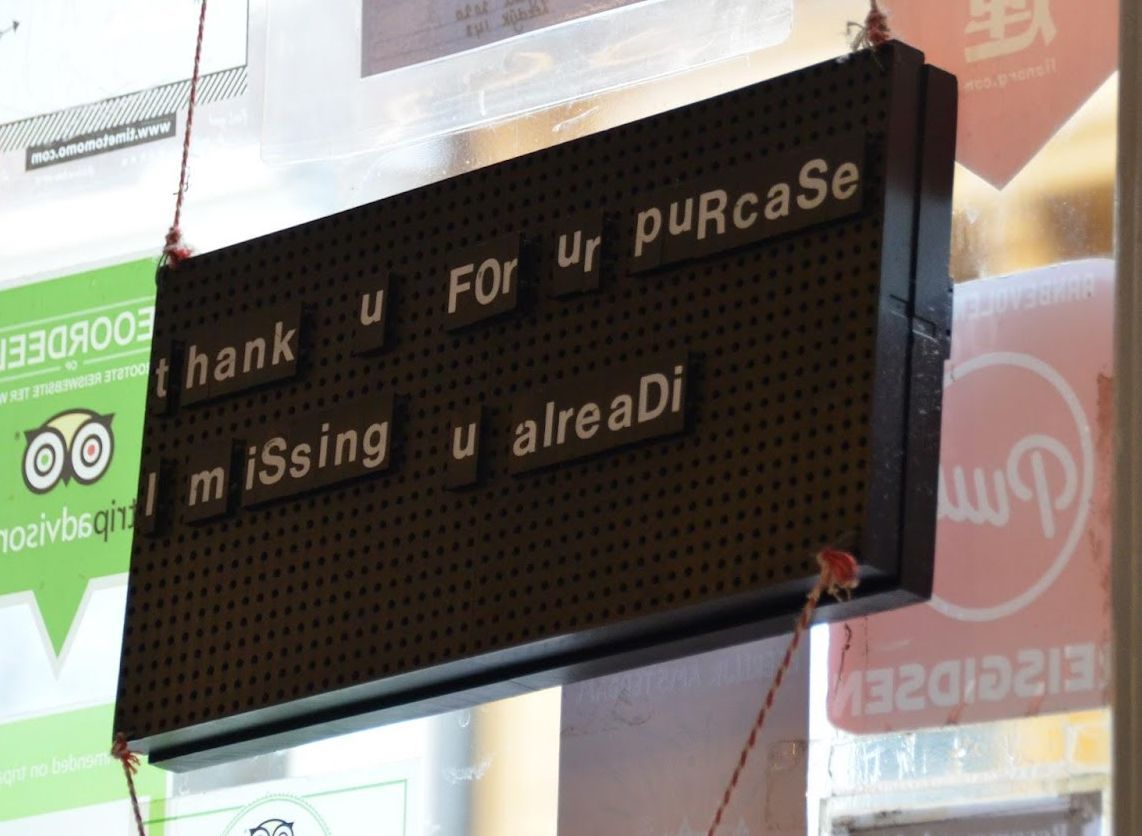ARE YOU GUILTY OF ANY OF THESE?
Most people misspell at least one of these words. How about you?
Published on November 25, 2023
 Credit: Jakob
Credit: Jakob
Depending on the context, spelling mistakes can be almost unnoticeable, or they can be catastrophic - changing the whole meaning of intended words or sentences.
Even when spell-check is automatized on most devices and computers, it is easy to overlook common mistakes if you let your guard down. Unfortunately, in the business world, bad spelling is never a good look.
According to recent surveys, almost half of hiring managers and recruiters automatically ignore a candidate’s resume if they detect spelling errors in it. And for many others, spelling and grammar mistakes can be one of the biggest deal breakers in a job hunt. So, whether you are looking for a job or just looking to improve your English skills, here’s a list of the most common English spelling mistakes:
Accommodate - Misspellings: acommodate, accomodate
 Credit: Marten Bjork
Credit: Marten Bjork
Think of carbon copy (‘cc’) and M&Ms: this one is spelled with two sets of double letters.
Apparent - Misspellings: apparant, aparent, apparrent, aparrent
 Credit: Marco Biondi
Credit: Marco Biondi
For whatever reason, many people find this word hard to spell correctly. Remember that there is only one set of double p’s in this case.
Acknowledgment - Misspelling: acknowledgement
 Credit: Greg Rosenke
Credit: Greg Rosenke
Luckily for you, if you tend to get these two confused, the spelling with an ‘e’ is also right! The only issue is that the spelling with an extra ‘e’ is the preferred British spelling.
Calendar - Misspelling: calender
 Credit: Roman Bozhko
Credit: Roman Bozhko
This one is mildly understandable since most English words tend to end with -er instead of -ar. But there's a good reason for this divergence from standards since the word calendar comes from shortening the Latin word kalendarium.
Colleague - Misspellings: collaegue, collegue, coleague
 Credit: krakenimages
Credit: krakenimages
Think of your favorite football league, and you’ll be in the clear! Just don’t forget the double ‘l’.
Entrepreneur - Misspellings: entrepeneur , entreprenur , entreperneur
 Credit: Towfiqu barbhuiya
Credit: Towfiqu barbhuiya
Being a loan word from French it’s easy to understand that so many Americans fail to spell this one correctly since it doesn’t follow general English spelling rules. As with most cases, just try to memorize it, it will be easier than conceiving mnemonic devices just for one word.
Led - Misspelling: lead
 Credit: Eric Heininger
Credit: Eric Heininger
More people than you would guess get the spelling of this seemingly easy word wrong. The past tense of ‘lead’ is ‘led’, not to be confused with the heavy mineral lead.
Necessary - Misspellings: neccessary, necessery
 Credit: Glenn Carstens-Peters
Credit: Glenn Carstens-Peters
Double letters are a harsh mistress, and you might never be completely sure about where - and when - to put them. Again, memorizing the spelling of these kinds of words might just be your best bet.
Publicly - Misspelling: publically
 Credit: José Martín Ramírez Carrasco
Credit: José Martín Ramírez Carrasco
According to the Oxford Dictionary, this is the most commonly misspelled word in the English language. Apparently, it is because it sort of violates a general rule where words ending in -ic tend to be expanded with an -ally, like in ‘logically’. The major exception to this case is the word ‘public’, confusing thousands of English speakers - and learners - in the process.
Receive - Misspelling: recieve
 Credit: Elaine Casap
Credit: Elaine Casap
This one also is on the Oxford Dictionary’s top 10 charts of most consistently misspelled words. But come on! The English language doesn’t deserve this, people. There’s a very memorizable rule about this specific case that goes I before E, except after C. See? It’s not that hard really.
Successful - Misspellings: succesful, successfull, sucessful
 Credit: Zac Durant
Credit: Zac Durant
If you want to be successful, you better learn how to spell success right first! However, this one is hard, with two sets of double letters in the middle but neither at the beginning nor the end of the word.
Withhold - Misspelling: withold
 Credit: Nikhil Mitra
Credit: Nikhil Mitra
Don’t withhold the double ‘h’s, no matter how hard it looks. Remember that this is a sort of Lego word, assembled from two complete but smaller words: ‘with’ and ‘hold’.
So… found anything of use here? Everyone makes mistakes, you know. English can be a complicated language, and there’s nothing to be ashamed of!
If our article helped you improve your writing, why not check out our blog? We love to delve deep into subjects related to language and the fun etymologies behind many English words.